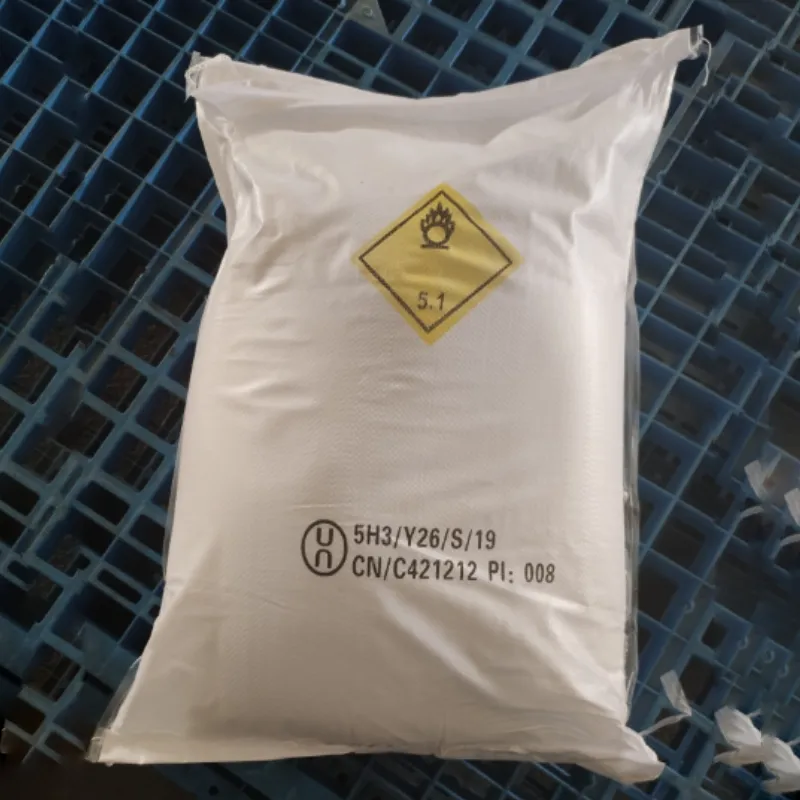
monopotassium phosphate fertilizer
The Benefits and Uses of Monopotassium Phosphate Fertilizer
Monopotassium phosphate (MKP) is an inorganic compound with the chemical formula KH2PO4. It is highly soluble in water and is primarily used as a fertilizer in agriculture. As a source of both potassium and phosphorus, MKP plays a crucial role in supporting plant growth, enhancing crop yields, and improving overall soil health. In this article, we will explore the benefits and various applications of monopotassium phosphate fertilizer.
Nutritional Profile and Importance for Plants
Monopotassium phosphate is a key source of two essential macronutrients potassium (K) and phosphorus (P). Both of these nutrients are vital for plant development. Potassium is crucial for many physiological processes, including water regulation, enzyme activation, and photosynthesis. It helps plants cope with stress, such as drought or disease, and increases resistance to adverse environmental conditions.
Phosphorus, on the other hand, plays a significant role in energy transfer within the plant, particularly in the form of adenosine triphosphate (ATP). It is essential for root development, flower and fruit formation, and overall plant vigor. Adequate phosphorus levels support better crop quality and yield potential.
Advantages of Using Monopotassium Phosphate
1. High Solubility One of the most significant advantages of MKP is its high solubility in water. This characteristic allows for quick absorption by plant roots, making it an excellent choice for fertigation and foliar applications. Rapid nutrient uptake can lead to a more immediate response from plants, improving growth and yield.
2. Balanced Nutrient Supply Unlike many other fertilizers, MKP provides a balanced supply of potassium and phosphorus without the presence of harmful salts or additional compounds. This balance contributes to healthier soil and plants, reducing the risk of nutrient imbalances.
3. Versatility Monopotassium phosphate can be used across various agricultural systems, including soil-based farming, hydroponics, and greenhouse cultivation. It is suitable for a broad spectrum of crops, from fruits and vegetables to ornamental plants.
monopotassium phosphate fertilizer

4. Reduced Risk of Nutrient Lock-up MKP has a lower risk of causing nutrient lock-up in the soil. Factors such as pH and soil type can affect the availability of nutrients. Usually, phosphorus can easily bind with other elements in the soil, making it unavailable to plants. However, MKP remains available for absorption even in less-than-ideal conditions.
Application Methods
There are several effective methods for applying monopotassium phosphate in agriculture
1. Soil Application MKP can be applied directly to the soil at planting, providing essential nutrients at the critical early growth stages. This method supports root establishment and overall plant growth.
2. Fertigation This technique involves dissolving MKP in irrigation water, allowing for precise nutrient delivery directly to plant roots. Fertigation ensures that plants receive a constant supply of nutrients, promoting steady growth and development.
3. Foliar Application Spraying a diluted solution of MKP directly onto plant leaves allows for rapid leaf absorption. Foliar applications can be particularly effective during critical growth periods, such as flowering and fruit setting, when nutrient demands are high.
Conclusion
Monopotassium phosphate fertilizer is an invaluable tool for farmers and gardeners looking to optimize plant health and crop productivity. Its unique combination of high solubility, balanced nutrient supply, and versatility makes it a preferred choice in various agricultural settings. By providing essential potassium and phosphorus, MKP can help improve plant vigor, enhance fruit quality, and increase overall yields.
As global food demands continue to rise, the importance of effective and efficient fertilizers like monopotassium phosphate cannot be overstated. When used appropriately, MKP can play a significant role in sustainable agriculture, contributing to healthier plants, improved soil conditions, and enhanced food production. Whether through soil application, fertigation, or foliar feeding, integrating MKP into fertility management can lead to successful and fruitful harvests.
-
Aluminum Hydroxide: Quality Gels & Dried Gel AntacidNewsAug.31,2025
-
Buy High-Quality Trichloroisocyanuric Acid for Sale | TCCA 90% SupplierNewsAug.30,2025
-
Pure Sodium Dichloroisocyanurate Dihydrate | Powerful DisinfectantNewsAug.29,2025
-
Industrial Chemicals: Quality & Purity for Every IndustryNewsAug.28,2025
-
Nitrile Rubber Honoring Strict Production StandardsNewsAug.22,2025
-
Aspartame Ingredients Honoring Food Safety ValuesNewsAug.22,2025
-
Fertilizer for Balanced Plant NutritionNewsAug.22,2025
Hebei Tenger Chemical Technology Co., Ltd. focuses on the chemical industry and is committed to the export service of chemical raw materials.
-

view more DiethanolisopropanolamineIn the ever-growing field of chemical solutions, diethanolisopropanolamine (DEIPA) stands out as a versatile and important compound. Due to its unique chemical structure and properties, DEIPA is of interest to various industries including construction, personal care, and agriculture. -

view more TriisopropanolamineTriisopropanolamine (TIPA) alkanol amine substance, is a kind of alcohol amine compound with amino and alcohol hydroxyl, and because of its molecules contains both amino and hydroxyl. -

view more Tetramethyl Thiuram DisulfideTetramethyl thiuram disulfide, also known as TMTD, is a white to light-yellow powder with a distinct sulfur-like odor. It is soluble in organic solvents such as benzene, acetone, and ethyl acetate, making it highly versatile for use in different formulations. TMTD is known for its excellent vulcanization acceleration properties, which makes it a key ingredient in the production of rubber products. Additionally, it acts as an effective fungicide and bactericide, making it valuable in agricultural applications. Its high purity and stability ensure consistent performance, making it a preferred choice for manufacturers across various industries.





